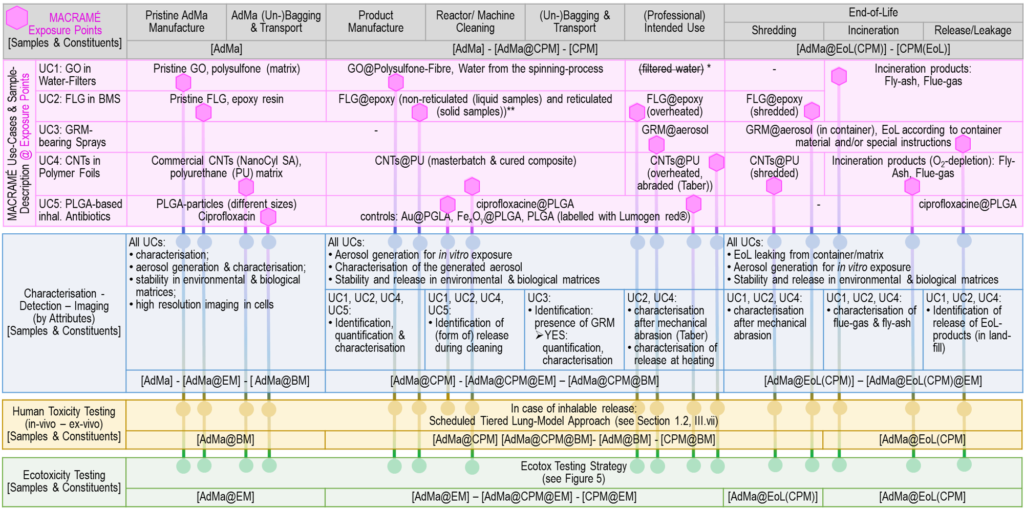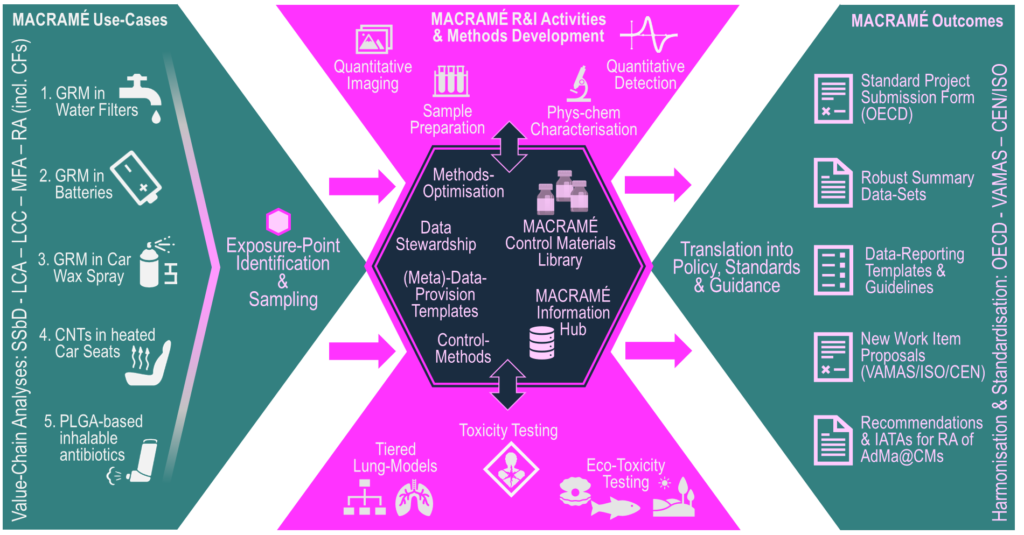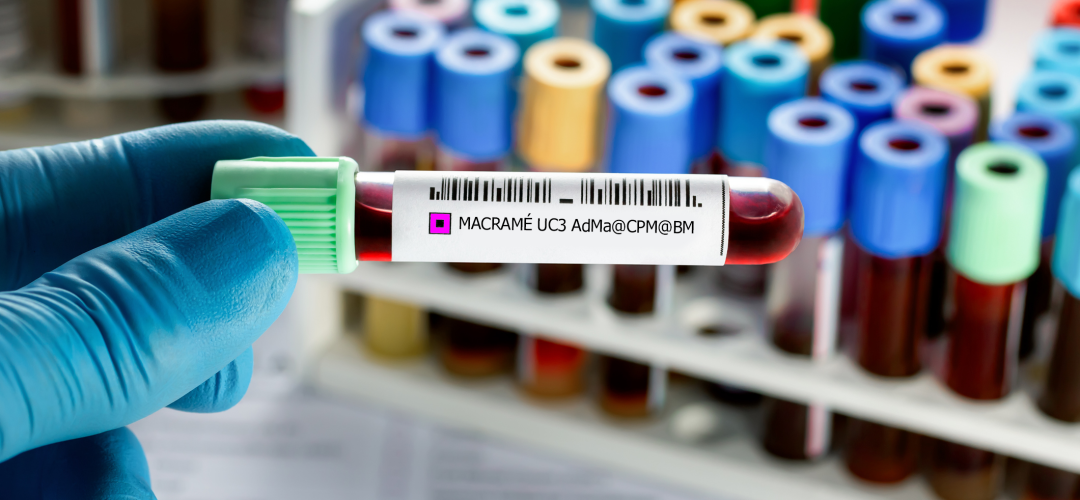The MACRAMÉ Project has published its first set of ‘Sampling & Sample-Provision Protocols for AdMas in complex Matrices’, in order to guide the sample collection that needs to be performed at the MACRAMÉ Use-Case (UCs) sites prior to sending the samples to MACRAMÉ laboratories for testing. Such sample collection is necessary along the value chain of all five MACRAMÉ Use-Cases of market-relevant industrial Advanced Materials (AdMas) in their complex matrices, where inhalation exposure or environmental exposure have been identified along the life cycle, or where there is a need for testing protocols for AdMas (see Figure 1).

Since MACRAMÉ deals with transformed AdMas (i.e. those in relevant complex matrices, not pristine materials), the work presented in this report focuses on the development and adaptations of protocols relevant for sample collection prior to be delivered for characterisation and further analysis. Identified challenges include the size of samples that need to be taken, and nature of samples, which may prevent exposure assessment in liquid media.
The MACRAMÉ Use-Cases and the identification of tehir respective exposure points along the material’s value chain play an important, central role in the MACRAMÉ Project (see Figure 2):
- Use-Case 1: Graphene oxide (GO) flakes in drinking-water filters (Material Family: GRM);
- Use-Case 2: Few-layer graphene (FLG) in battery management systems (BMS) (Material Family: GRM);
- Use-Case 3: Graphene-related materials (GRM) in bicycles/car lubricant consumer sprays (Material Family: GRM);
- Use-Case 4: Carbon nanotubes (i.e. CNTs) in car-seats (Material Family: carbon fibres); and
- Use-Case 5: Poly lactic-co-glycolic acid (PLGA) for inhalable antibiotics (Material Family: PLCG).

Sampling protocols are important to allow for adequate standardisation and harmonisation. They guide the collecting of all necessary samples of a kind in a similar fashion and thus allow for comparison of experimental results. Developing sampling protocols particularly enables the provision of samples that are fit for the respective experimental conditions, e.g. free of contamination, which is needed for in vitro toxicological experiments. Furthermore, standard practices can contribute to avoiding risks to human or the environment while performing sampling, e.g. in the case of sampling powders.
Follow this link to download and read the full MACRAMÉ report on ‘Sampling & Sample-Provision Protocols for AdMas in complex Matrices’.








